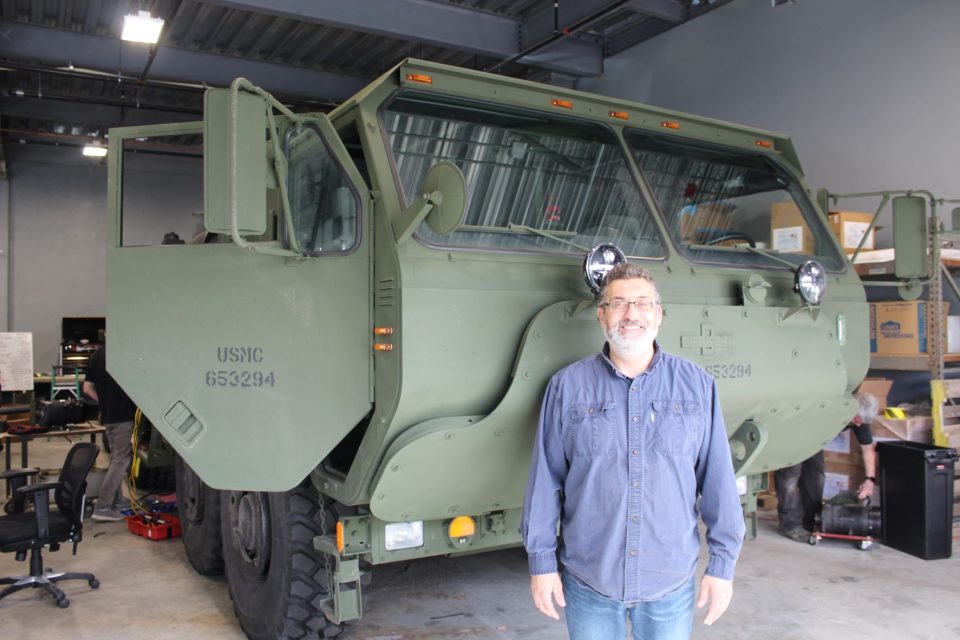ROWLEY – If you have been surprised to see a 36-foot long, five-axle military truck hauling down Rte. 1 recently, don’t worry. We are not being invaded.
It is the 60,000-pound Logistics Vehicle System Replacement (LVSR), a critical component in supplying the Marine Corps troops in hostile and extreme conditions.
The LVSR, designed and manufactured by Oshkosh Defense, is being retrofitted here by Blackburn Energy to add the capability of operating the vehicle’s communications and air conditioning without idling the engine.
When driving the LVSR, “We get a lot of strange looks,” said Andrew Amigo, Blackburn’s CEO and founder. The students at the Clark School, Blackburn’s neighbor, love to wave to him as he drives the giant LVSR past the school, he said.
The LVSR hauls a variety of battlefield supplies, including huge bladders of diesel fuel, to forward-deployed units. It can also act as a tow truck for vehicles.
While sitting at a forward position in hostile territory, the retrofitted LVSR will also keep the two-Marine crew comfortable and in communication without having to idle its engine. That saves many gallons of very expensive diesel fuel.
Blackburn in partnership with Toyota Tsusho America, Inc. (TAI), is marketing the battery-driven system, known as RelGen, to the trucking industry. Its goal is to turn “all commercial vehicles into platforms that create, store, use and deliver clean energy.”
Much like a Toyota Prius harnesses kinetic energy from the car to replenish its electric batteries, Blackburn’s system captures wasted energy in large trucks. The energy is stored in battery packs and used to electrify trucks without the need for costly infrastructure.
The long-haul trucking industry uses Blackburn’s system to power the air conditioning, lights, computer and TVs for drivers overnighting in their cab without idling the engine. Today, Amigo’s system can power everything on a truck including the engine cooling fan, air conditioning and liftgates, except the powertrain.
As a result, the RelGen system increases the mileage on trucks from an average of 6.5 gallons per mile to 10 gallons, Amigo said. Its battery packs also make the truck more efficient and profitable.
Once installed on trucks worldwide, Blackburn will reduce carbon dioxide emissions in the atmosphere more than any other green measure, Amigo said.
The Marine Corps through the U.S. Defense Innovation Unit has contracted with Blackburn to make its fleet of LVSR vehicles cleaner and more efficient.
“Blackburn is uniquely suited to solve the most difficult vehicle electrification problems presented by customers with operational needs that require the continued use of diesel platforms,” Amigo said.
Blackburn is retrofitting one LVSR to demonstrate next month its capabilities to the Marine Corps.
Making Marine Corps Trucks More Efficient
Tuesday March 28, 2023




